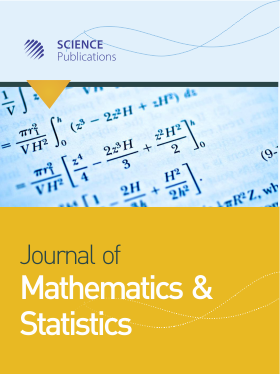Decomposition of Marginal Homogeneity into Logit and Mean Ridits Equality for Square Contingency Tables
Abstract
Problem statement: For square contingency tables with ordered categories, if the Marginal Homogeneity (MH) model holds, then the probability that X selected at random from the row marginal distribution is less than Y selected independently at random from the column marginal distribution equals the probability that X is greater than Y. However, the converse does not hold. We are interested in the condition in order that the converse holds. Approach: This study gave a decomposition theorem that the MH model holds if and only if both the marginal cumulative logistic model and the model of equality of mean ridits for the row and column marginal distributions hold. Examples are given. Results: For the data of cross-classification of ewes according to number of lambs born in consecutive years and cross-classification of unaided distance vision of women in British, the decomposition of the MH model is applied and the detailed analysis is given. Conclusion: When the MH model fits the data poorly, this decomposition is useful for seeing which of decomposed two models influences stronger.
DOI: https://doi.org/10.3844/jmssp.2010.64.67

- 3,885 Views
- 2,458 Downloads
- 2 Citations
Download
Keywords
- Decomposition
- marginal cumulative logistic model
- marginal homogeneity
- mean ridit
- square contingency table
